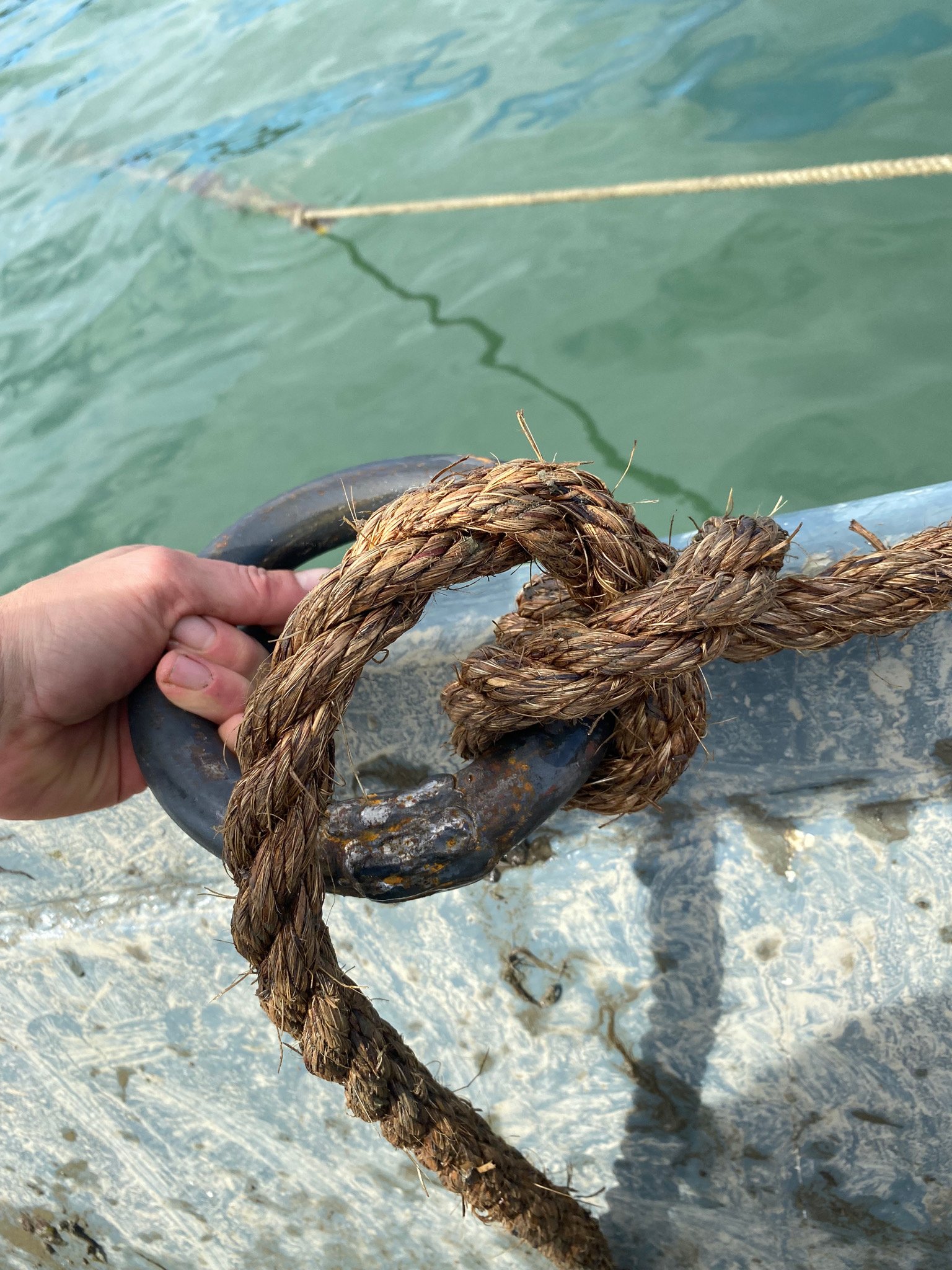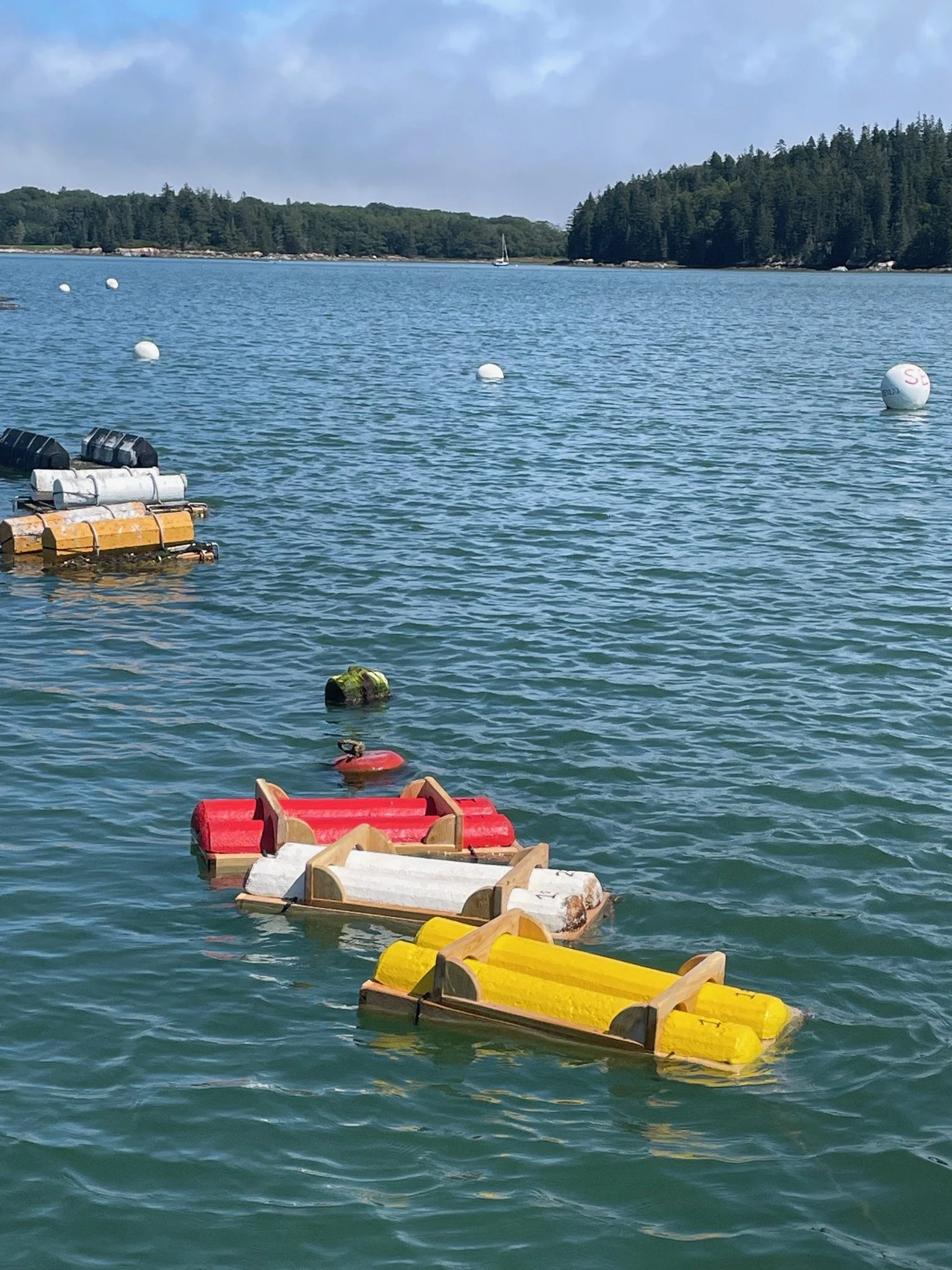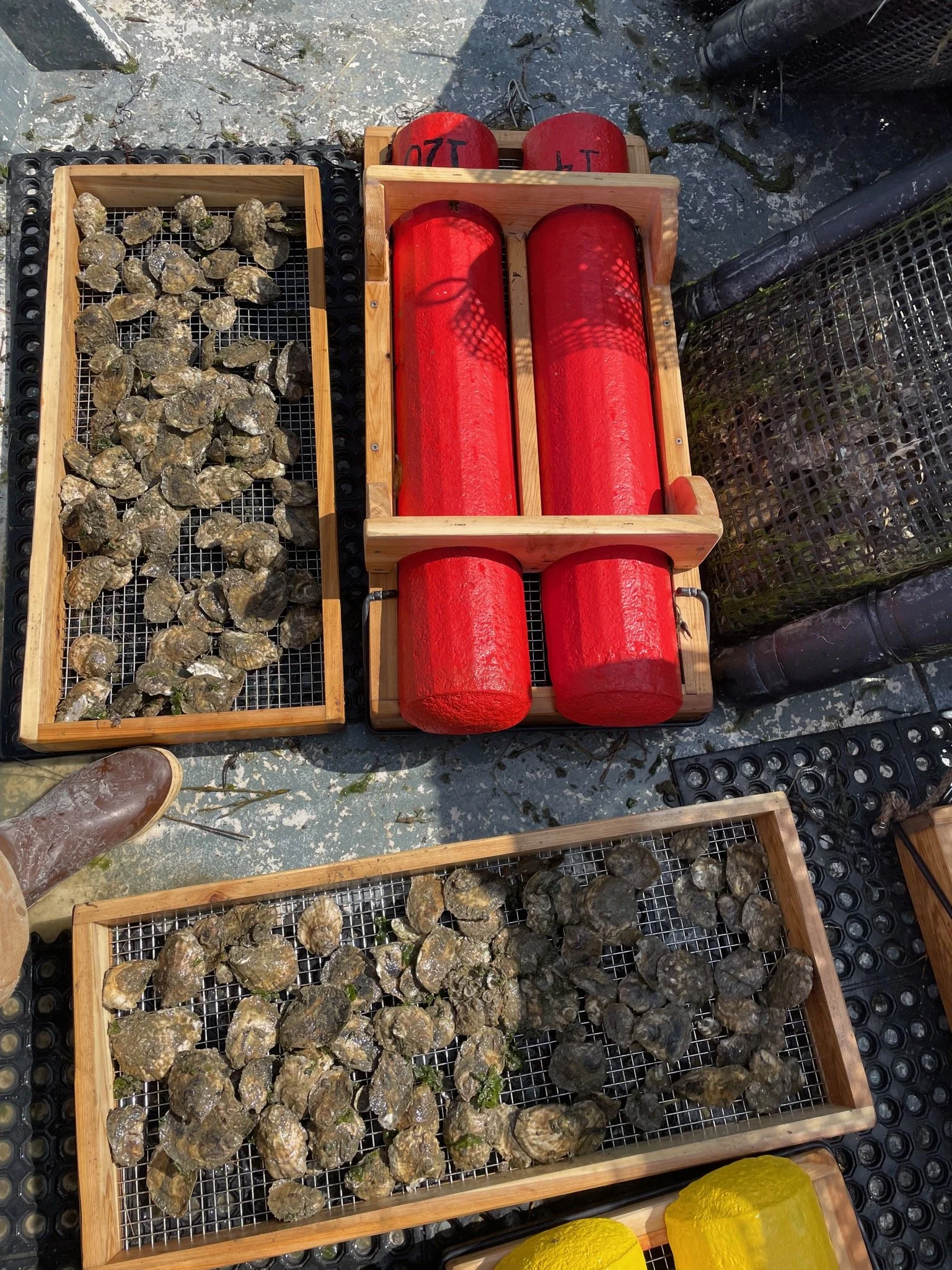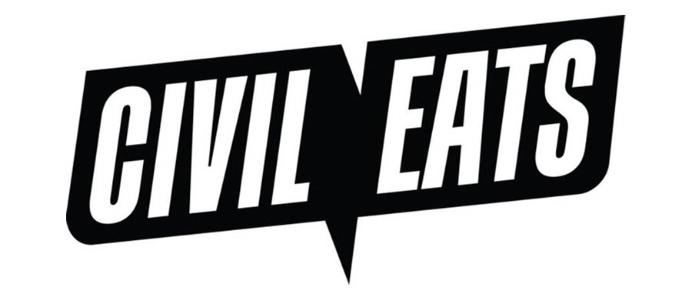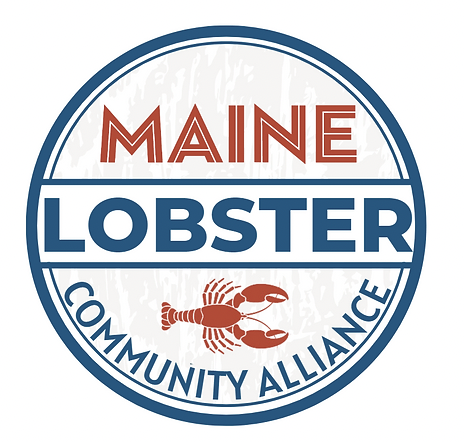Aquaculture, specifically shellfish and seaweed aquaculture, is often celebrated as among the most sustainable food production systems in the marine world.
Oyster and seaweed aquaculture techniques do tread lightly on the environment, and are beneficial to ocean health in many ways—but the fact remains that a reliance on plastics in every step of cultivation has an enormous negative environmental impact.
Deer Isle Oyster Co is working to immediately and directly reduce the environmental impact of oyster aquaculture- through reducing greenhouse gases by not using plastic, stopping plastic pollution in the ocean through microplastic shedding, and accidental gear loss.
Plastic Free Sea Farming: How it Works
-
What we're doing...
This is our third year developing and testing plastic free oyster grow-out prototypes. Each year we have built on what we’ve learned both on our farm and from our partner farms in mid-coast and southern Maine.
Usually, oyster ranches are made of vinyl coated trap wire with four or six sections to hold plastic mesh bags with two large plastic pontoon floats. Our trial ranches are aluminum instead of vinyl coated trap wire and our pontoon floats are linseed paint coated cork and untreated mycobuoys™ (hemp chafe inoculated with mycelium, also known as ‘mushroom buoys’). Instead of plastic mesh bags, our inserts for the ranches are cedar box frames with either basalt mesh or perforated aluminum. On the trial ranches we use natural rubber and hemp line as fasteners, instead of plastic bungees, zip-ties, or polyline.
-
How it's going...
This season we’ve had our first plastic-free ‘ranch’ style gear in the water.
We have observed that our plastic-free floats are not impermeable and have gotten water-logged, indicating further R&D is needed.
Conversely, the cedar boxes inside of the trial ranches have stayed very buoyant and have kept the ranches afloat even without functional floats.
Our basalt mesh is more delicate than plastic and has faced significant wear as tunicates and algae have put significant weight on them causing the mesh to stretch and rip out at the seams of the frame. The cedar boxes with sheets of perforated aluminum instead of mesh have held up quite well.
-
What's next...
As we continue to hear from our partner farms we continue to learn more about what materials work and where we can improve as we wrap up our season and make adjustments for next seasons sea trials.
In the Winter season, we will get into the data and oyster growth rates and continue to work on developing feasible alternatives to plastic in oyster aquaculture.
We hope to have a future free of growing our food in plastic!
Are you interested in learning more about our plastic free sea farming? Check out the articles below or email abby@deerisleoysterco.com


